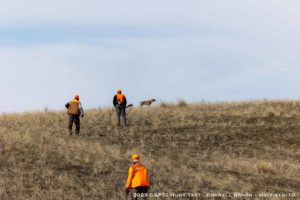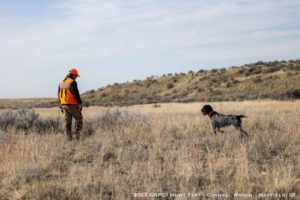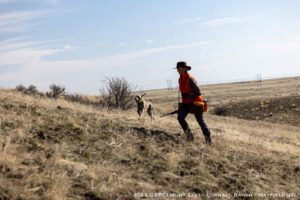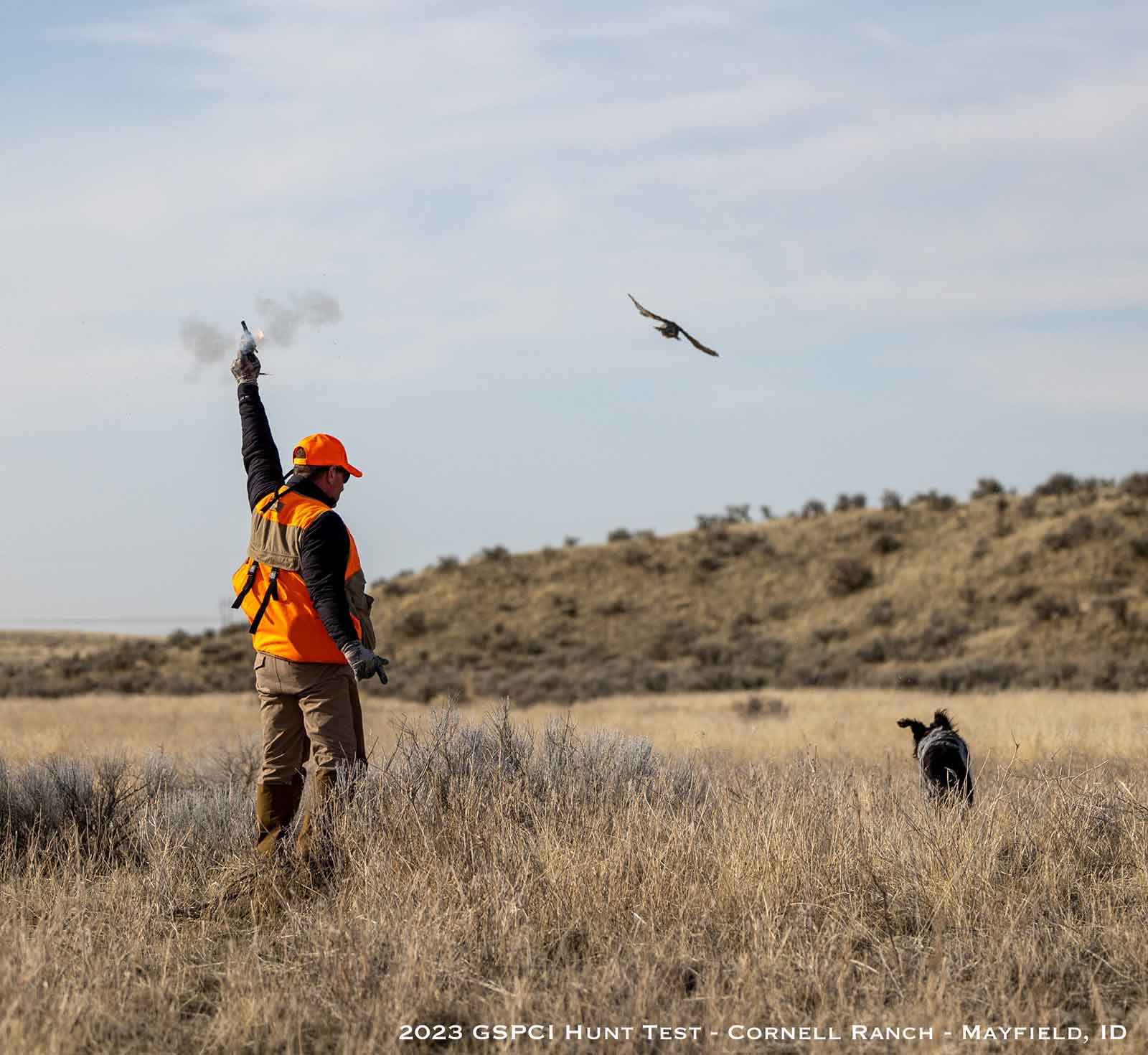
- Hunting: Dogs must demonstrate desire, boldness, independence, speed and a useful pattern
of running. Dogs must hunt and not merely be out for a run in the field. They must show
independence by leaving their handler’s side to explore the territory. Junior dogs are scored
more leniently than Seniors and Masters. - Bird Finding Ability: The dog must demonstrate the ability to find game. Translated, find a bird
or don’t pass. The number of finds is not as important as the quality of the finds. Scenting
conditions, terrain and cover should be considered in the scoring of this category. Note: the
course should have sufficient birds (no less than two per brace and more are strongly
recommended) to insure that a dog with good finding ability will locate them. -

German Shorthair Pointer Club of Idaho Pointing: scoring in this category should reflect the style (intensity and staunchness) of the dog
and its ability to pinpoint birds, especially with difficult or confusing scent patterns. A dog with
a low stance should not be scored lower than a dog with a high stance if it demonstrates
staunchness and intensity, particularly in difficult pointing situations. A 12 o’clock tail is not
necessary and indeed is not found in any AKC Pointing Breed standards. Flagging (considered a
lack of staunchness) on game is generally a fault in older, more experienced dogs, but should
not be reflected too severely in the pointing score of a Junior dog. A flash point cannot quality
in any of the three levels. A flash point is generally a point in which the dog stops only
momentarily before chasing the bird.
Junior dogs must hold their point until the handler gets with normal gunshot range and must
point at least 50% of the birds they find.
Senior dogs must point and remain in position until the bird is shot or the dog is released. The
dog may reposition itself if it is attempting to pin the bird. The dog should not creep after or
trail a bird that the handler is attempting to flush.
Master dogs must demonstrate steadiness to wing and shot on all birds and cannot receive a
qualifying score if it breaks. -

German Shorthair Pointer Club of Idaho Trainability: A dog is judged on its willingness to be handled, its obedience to commands and
its gun response. In Juniors, the dog must demonstrate “reasonable obedience” to commands
and be willing to be handled. The Senior dog is scored with less tolerance than the Junior. The
scoring of “obedience” and “willingness to handle” should reflect the level of response by the
dog. The Senior dog must stop on a wild flushed bird and may be commanded to do so. The
Master dog cannot be given a command to stop. Gun response is also evaluated under
Trainability. - Retrieving: Not required of a Junior dog. A good retrieve is one characterized by directness to
the bird, quick location, prompt pick up, brisk, direct return to the handler, with tender
delivery. A Senior dog is not required to retrieve to hand. Generally one or two steps would be
generally acceptable. A Master dog must retrieve absolutely to hand. The handler cannot
assist the dog on the retrieve in either Senior or Master tests by moving toward the downed
bird. Mouthing is a serious fault and any dog which renders a bird unfit for consumption
cannot receive a qualifying score.
German Shorthair Pointer Club of Idaho - Honoring/Backing: Honoring is a requirement in Senior and Master levels. If a dog is given an
opportunity to honor and refuses, it cannot receive a qualifying score. In Seniors the handler
may give the dog a command to honor but only after the dog acknowledges that its bracemate
is on point. A dog that steals its bracemate’s point cannot receive a qualifying score. A Master
dog must honor on its own.
of 7 for the required elements. Any score of less than five on any element is a non-qualifying
score, even if the average score is seven or more.


